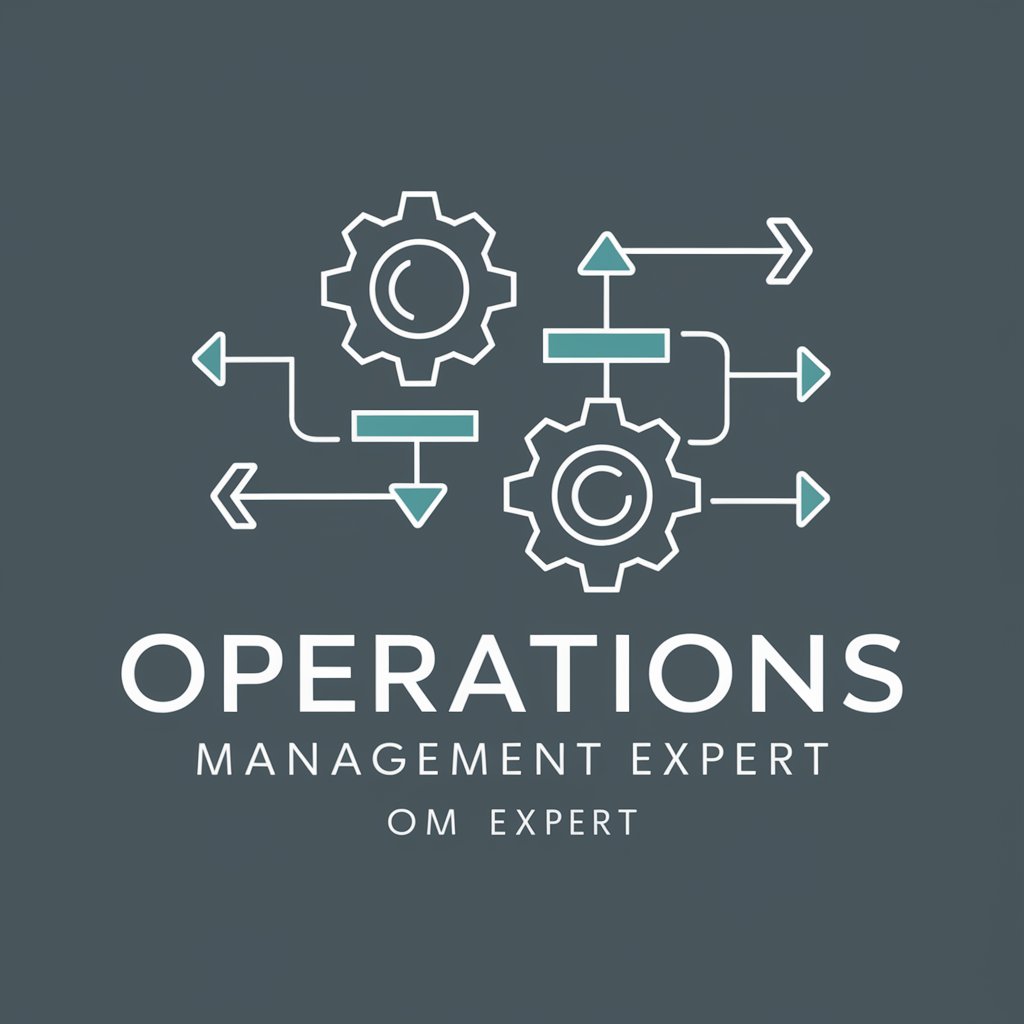
MBA Operational Finance - AI-Powered Financial Analysis

Welcome to expert financial analysis and insights.
Empowering Financial Decisions with AI
What are the key financial ratios to assess a company's liquidity?
How do you evaluate the operational efficiency of a company?
Explain the importance of cash flow management in operational finance.
Describe the steps in creating a sustainable financial growth model.
Get Embed Code
Introduction to MBA Operational Finance
MBA Operational Finance is an advanced AI-driven platform designed to provide expert assistance in operational finance, embodying the knowledge and analytical prowess equivalent to a top-tier MBA level in this field. Its core purpose is to support users in analyzing financial data, documents, and texts, offering in-depth insights into financial operations and aiding in decision-making processes. An example scenario could be an MBA Operational Finance system aiding a company in dissecting its financial statements to discern cost structures, analyze working capital requirements, or prepare treasury budgets, thereby providing clear, actionable insights. Powered by ChatGPT-4o。

Main Functions of MBA Operational Finance
Financial Analysis
Example
Interpreting balance sheets and income statements to diagnose a company's financial health.
Scenario
For instance, a business may use MBA Operational Finance to analyze their annual financial report, understanding the implications of various financial ratios, mapping out the origins and applications of funds, and assessing working capital to drive strategic decisions.
Financial Forecasting
Example
Preparing short-term financial forecasts using treasury budgets and balance sheet projections.
Scenario
A company planning for the next fiscal year could leverage MBA Operational Finance to simulate various operational scenarios, predict financial outcomes based on different business decisions, and prepare for future financial needs.
Operational Issue Analysis
Example
Examining components of current assets like inventory and receivables to optimize financial management.
Scenario
An organization might use MBA Operational Finance to scrutinize their inventory management practices, assess the impact of their credit policies on liquidity, and implement more efficient cash management strategies.
Ideal Users of MBA Operational Finance
Corporate Executives
Senior management teams, including CFOs and financial directors, would find MBA Operational Finance invaluable for strategic planning, financial analysis, and decision-making, enabling them to drive business growth and operational efficiency.
Financial Analysts
Financial analysts and consultants can utilize MBA Operational Finance to deepen their analyses, provide more nuanced advice to their clients or employers, and enhance their reports with data-driven insights.
Small and Medium Business Owners
SMB owners often require robust financial analysis and forecasting to navigate competitive markets and make informed decisions. MBA Operational Finance can offer them accessible, high-level expertise to optimize their financial strategies.

Guidelines for Using MBA Operational Finance
Step 1
Initiate your journey by accessing a free trial at yeschat.ai, where no login or ChatGPT Plus subscription is necessary.
Step 2
Familiarize yourself with the tool's capabilities by reviewing available resources and tutorials provided on the platform.
Step 3
Input your financial data or upload documents directly to the platform for analysis, ensuring data privacy and confidentiality.
Step 4
Utilize the tool's features for analyzing financial documents, preparing forecasts, and conducting ratio analysis.
Step 5
Leverage the AI-generated insights and recommendations to make informed operational finance decisions.
Try other advanced and practical GPTs
The Accountant
Empowering Finances with AI

DeepDive AI
Empowering Insight with AI Intelligence

CodEx
Empowering your code with AI guidance.

Free Response Quiz Grader & Feedback Generator
Elevate learning with AI-powered feedback

You're Fired!
Master negotiation with AI-powered simulations.

Kids' Book Maker
Bringing stories to life with AI

SydNay's Chatbot 2.0 (PRO)
Unveiling AI's Future Through Expert Insight

Advanced Ghost CMS Theme Expert
AI-Powered Ghost CMS Theme Development

Image Enhancer Pro
AI-Powered Image Clarity & Enhancement

Book Summarizer
Simplify your reading with AI-powered summaries.

Strategist Command
Elevate Your Game with AI-Powered Strategy

History Joker's
Laugh and Learn with AI-Powered History

Frequently Asked Questions about MBA Operational Finance
What is MBA Operational Finance?
MBA Operational Finance is an AI-driven tool designed to analyze financial documents, provide forecasts, and assist in making informed financial decisions for businesses.
How does the tool analyze financial documents?
The tool employs AI algorithms to examine balance sheets, income statements, and other financial documents, extracting key data points and performing ratio analysis to provide insights.
Can MBA Operational Finance generate financial forecasts?
Yes, it supports users in preparing short-term financial forecasts by applying treasury budgets and balance sheet projections based on operational characteristics.
Is it suitable for managing current assets?
Absolutely. It analyzes components of current assets like treasury, customer credit policy, and stock management, impacting the company's financial situation.
How can users ensure optimal experience?
For the best experience, users should provide detailed and accurate financial data, use the tool's comprehensive analysis features, and apply the insights to strategic decision-making.





